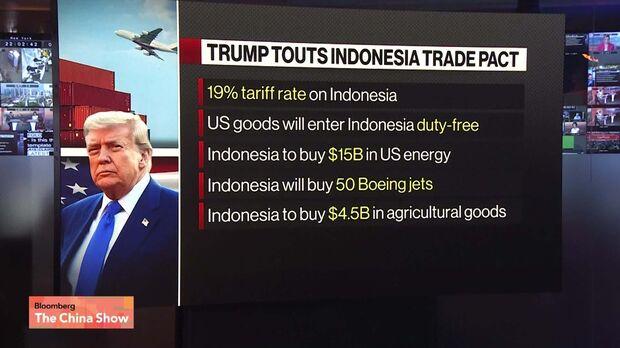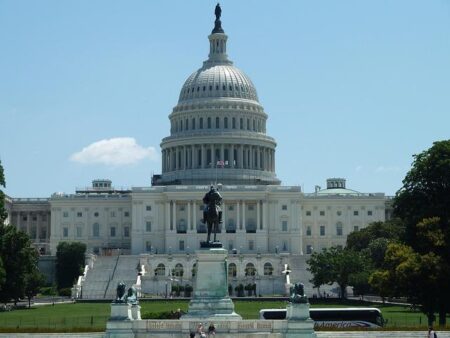Indonesia has described its recent trade agreement with the United States as an “extraordinary struggle,” highlighting the complex and challenging negotiations that underpinned the deal. The accord, which marks a significant milestone in bilateral economic relations, was reached after intense discussions aimed at addressing longstanding trade barriers and fostering greater market access. As both countries seek to strengthen their economic ties amidst a shifting global trade landscape, the deal underscores the difficulties and strategic efforts involved in crafting modern trade agreements.
Struggles and Challenges Behind Indonesia’s Trade Negotiations with the US
The road to securing a landmark trade agreement between Indonesia and the United States was anything but straightforward. Officials from both sides highlighted a series of difficult hurdles that tested diplomatic patience and negotiation stamina. From complex tariff structures to intellectual property rights controversies, each issue demanded careful scrutiny and significant compromise, reflecting the high stakes of the Asia-PacificŌĆÖs most ambitious trade discussions in recent years.
Among the most pressing challenges were:
- Balancing economic interests: Indonesia sought to protect its burgeoning manufacturing sectors while gaining better access to the expansive US market.
- Regulatory alignment: Closing gaps in environmental, labor, and safety standards proved intricate and time-consuming for both parties.
- Overcoming political sensitivities: Domestic pressures demanded transparency and safeguards to ensure the deal wouldnŌĆÖt undercut local enterprises.
| Challenge | Impact | Resolution Approach |
|---|---|---|
| Tariff Disputes | Delayed agreement timeline | Incremental tariff phase-out plan |
| Intellectual Property | Concerns over enforcement | Strengthened monitoring mechanisms |
| Political Opposition | Negotiation setbacks | Engagement with stakeholder groups |
Key Economic Sectors Impacted by the New Trade Agreement
Manufacturing and Agriculture stand out as the most directly influenced sectors, with Indonesia anticipating significant shifts in export dynamics. The deal promises to reduce tariffs on key industrial goods, boosting competitiveness for Indonesian manufacturers in the US market. Meanwhile, agricultural producers see expanded access for commodities like palm oil, rubber, and spices, potentially leading to a surge in export volumes. However, these gains come with increased regulatory oversight and compliance pressures, demanding swift adaptation from local businesses.
Other sectors witnessing change include:
- Textiles and Apparel: Expected to benefit from eased customs processes, accelerating shipment times.
- Technology and Electronics: Enhanced intellectual property protections aim to boost investor confidence.
- Tourism and Services: Facilitated visa regulations could foster greater US tourist arrivals, underpinning local economies.
| Sector | Expected Impact | Key Opportunity |
|---|---|---|
| Manufacturing | Tariff reductions | Increased export volume |
| Agriculture | Expanded market access | New trade partnerships |
| Technology | Stronger IP protections | Foreign investment growth |
Indonesia’s Strategic Policy Moves to Secure Favorable Terms
In its recent trade negotiations with the United States, Indonesia adopted a multifaceted strategy designed to bolster its bargaining power and protect national interests. Key to this approach was a rigorous push for market access improvements while preserving vital local industries from premature exposure to U.S. competition. The Indonesian delegation emphasized the importance of safeguarding sectors that contribute significantly to domestic employment and economic stability, signaling a clear prioritization of long-term growth over short-term concessions.
Additionally, Jakarta leveraged its strategic geopolitical position and economic potential to foster a sense of mutual benefit, rather than adopt confrontational postures. Core policy moves included:
- Targeted tariff adjustments aimed at supporting critical export commodities without undermining domestic producers
- Enhanced regulatory cooperation to reduce non-tariff barriers and facilitate smoother trade flows
- Commitments to sustainable development that aligned with global standards but insulated Indonesia’s emerging green industries
| Policy Focus | Objective | Outcome |
|---|---|---|
| Tariff Margins | Protect key exports | Negotiated partial reductions |
| Regulatory Alignment | Simplify trade process | Agreed on joint frameworks |
| Sustainability Measures | Support green growth | Secured phased implementation |
Recommendations for Indonesian Businesses Navigating the Post-Deal Landscape
Indonesian businesses should begin by prioritizing market research and compliance with new U.S. regulations introduced under the trade deal. Understanding tariff reductions and non-tariff barriers will empower local companies to optimize their export strategies and avoid costly missteps. Establishing partnerships with trusted U.S. distributors and leveraging digital platforms for enhanced supply chain visibility are crucial steps toward gaining a foothold in the competitive American market. Furthermore, investing in technology to meet stringent quality and sustainability standards will help Indonesian exporters set themselves apart.
To successfully navigate the evolving post-agreement environment, firms are advised to focus on innovation, diversification, and capacity building. Expanding product lines to align with U.S. consumer preferences, while improving production efficiency, can mitigate risks associated with market fluctuations. Below is a simple framework businesses can use to align their operations with the dealŌĆÖs opportunities:
| Focus Area | Action Steps |
|---|---|
| Regulatory Alignment | Engage local trade experts to interpret new rules |
| Product Innovation | Design goods tailored to U.S. market demand |
| Partnerships | Collaborate with U.S. importers for distribution |
| Capacity Building | Train workforce on compliance and quality standards |
Key Takeaways
The landmark trade agreement between Indonesia and the United States marks a significant milestone after what Indonesian officials have described as an ŌĆ£extraordinary struggle.ŌĆØ As both nations move forward, the deal is expected to reshape economic ties and open new opportunities for businesses on both sides. The negotiation process underscored the complexities of international trade diplomacy, reflecting broader geopolitical and economic considerations. Observers will be closely watching how the implementation of the agreement influences market dynamics and bilateral relations in the months ahead.




